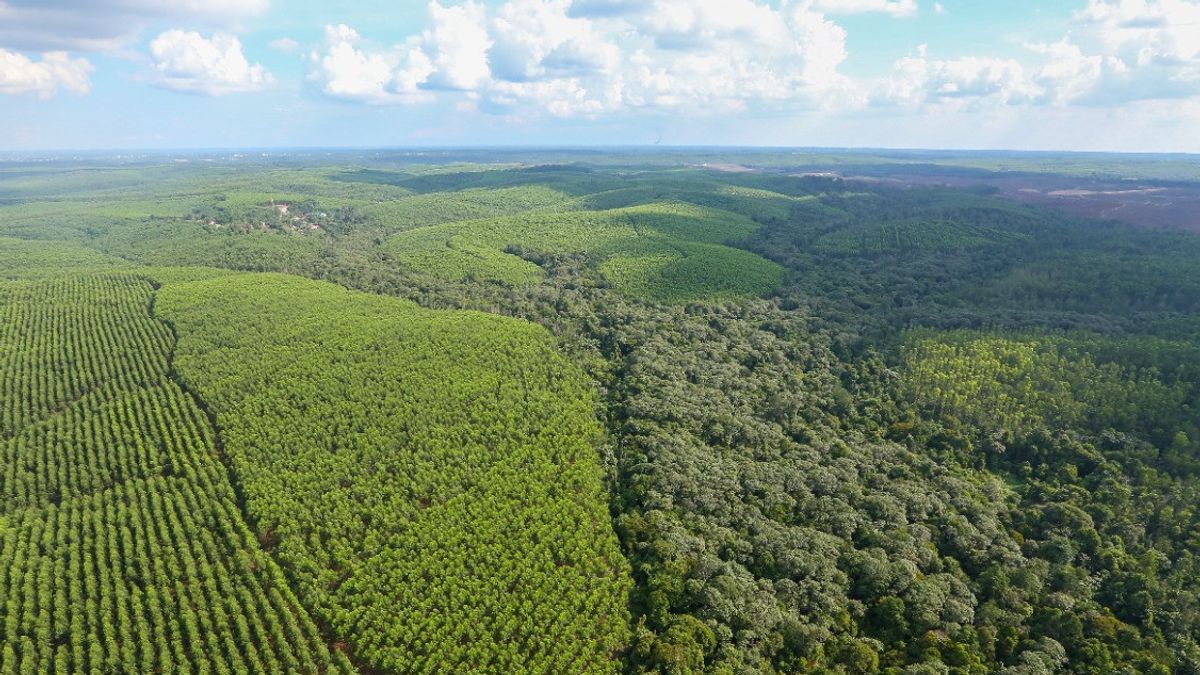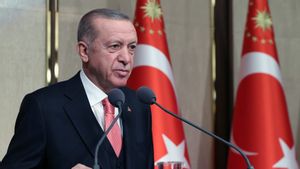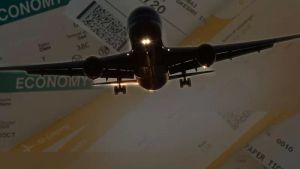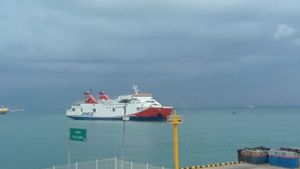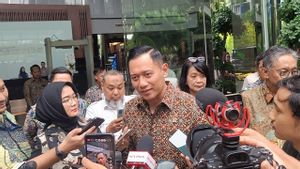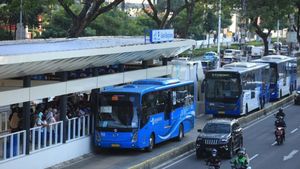JAKARTA - The Ministry of Environment and Forestry discloses data about what Greenpeace has done so far. Moreover, Greenpeace said that during 2002-2019, deforestation was almost 1.69 million hectares in Industrial Plantation Forest (HTI) concessions and 2.77 million hectares of oil palm plantations.
Secretary General of the Ministry of Environment and Forestry, Bambang Hendroyono, emphasized that Greenpeace certainly understands the rate of deforestation in Indonesia from year to year in the aforementioned period. The problem - said Bambang - Greenpeace is involved in cooperation with a number of palm oil and forestry companies in Indonesia. It happened from 2011 to 2018.
In 2011, Greenpeace began collaborating with large palm oil group companies, which demonstrated, among other things, how difficult it is for a palm oil business group to escape deforestation, peat drainage and forest and land fires (karhutla). Both what happened to the palm oil group's concessions and the supply chain when it happened, were in the period when the companies were working with Greenpeace, as written in a press release, Wednesday 17 November.
Not only that, continued Bambang, in 2013, Greenpeace also collaborated with a group of pulp and paper industry companies, in Sumatra. While collaborating with Greenpeace, the company is still associated with deforestation, draining peat, opening hundreds of kilometers of new canals; so that the company experienced extensive karhutla.
"The Minister of Environment and Forestry gave sanctions to a number of large group companies and other companies from the 2015 Karhutla incident; the opening of new canals and acacia planting activities on the burned areas. The sanctions were given by the government at a time when Greenpeace was still working together, in collaboration with the company in question," explained Bambang at length.
Greenpeace, he continued, certainly has sufficient understanding and experience on the issue of deforestation, peat drainage and forest and land fires. This is because Greenpeace has closely collaborated with large groups of companies in the palm oil and pulp/paper sector for many years.
In response to Greenpeace's request to revoke business permits on peatlands, the Secretary General of the Ministry of Environment and Forestry emphasized that Greenpeace did not provide conditions in its collaboration with a group of companies to hand over business permits for the group of companies whose areas are also located on peatlands. There is no gossip or Greenpeace recommendation for the government to revoke the permit.
“I am a historical witness, how the Greenpeace collaboration process with certain large corporate groups was declared in 2013. Greenpeace does not provide conditions for the company in question not to operate in the area of its ongoing business permits on peatland,” said the Secretary General of the Ministry of Environment and Forestry.
"Greenpeace also does not require the company to hand over its business permits on peatlands to the government for revoking," he added.
That means, continued Bambang, over the years collaborating with Greenpeace, the large palm oil and pulp/paper group companies in question continue to operate in the areas of their business permits on peatlands.
In fact, continued Bambang, in the forest conservation policy launched by the oil palm and pulp/paper group, where the company's policies were prepared, approved and declared by the group of companies together with Greenpeace, there is no clause that requires palm oil and pulp/ the company's paper to stop the use of peatlands by the large group of companies in question.
“Why is Greenpeace now urging the government to revoke business permits on peatlands? This shows Greenpeace's inconsistent position,” said the secretary general.
Regarding the distribution of HTI and oil palm concessions in Peat Hydrological Units (KHG) in 7 priority provinces for peat restoration, Bambang again emphasized that Greenpeace certainly understands well that almost all business permits on these lands were not granted during the Jokowi administration.
"When Greenpeace announced its collaboration with the palm oil and pulp/paper sector groups, these concessions were already on peatlands, and President Jokowi had not yet served as President of the Republic of Indonesia," he explained.
Regarding palm oil in forest areas, the Secretary General of the Ministry of Environment and Forestry underlined that almost all of these cases did not occur during the period of President Jokowi's administration.
The issue of palm oil in forest areas, he continued, is clearly not new to Greenpeace because when Greenpeace collaborates with large palm oil groups, there are also palm oil concessions located in forest areas.
“Why has Greenpeace started and continued to collaborate with the company's palm oil group for years whose concessions are in forest areas? This is also a clear example of Greenpeace's inconsistency,” said Bambang.
“If Greenpeace is now asking about palm oil in forest areas, the question is why are they only now asking about it? Hasn't Greenpeace been collaborating with oil palm groups that own oil palm in forest areas for years?” asked the Secretary General of the Ministry of Environment and Forestry.
The English, Chinese, Japanese, Arabic, and French versions are automatically generated by the AI. So there may still be inaccuracies in translating, please always see Indonesian as our main language. (system supported by DigitalSiber.id)
